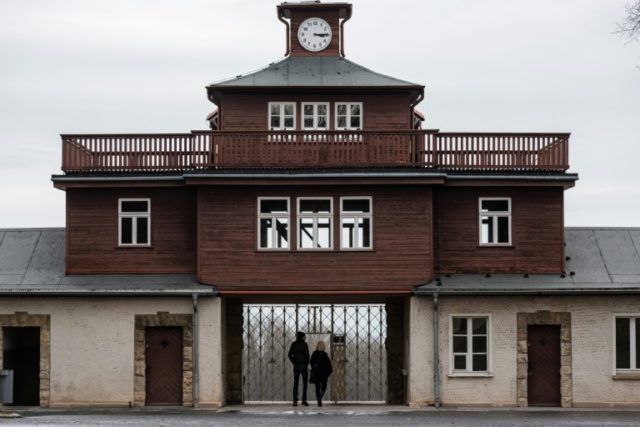Berlin (AFP) – With the coronavirus pandemic wiping clean much of the calendar of public events in Germany, the memorial at the Buchenwald former concentration camp marked the 75th anniversary of its liberation on Saturday in a new way.
It published online a “Declaration of Thuringia” (www.thueringer-erklaerung.de) — in German, English and French — warning that “human rights, democracy and freedom can by no means be taken for granted” as “right-wing radicalism and authoritarianism are on the rise”.
Signed by figures from politics and civil society, including Thuringia state premier Bodo Ramelow and Auschwitz and Buchenwald survivor Ivan Ivanji, the text described as a grave threat “a form of populism emboldened by a racially motivated superiority complex, nationalism and the undermining of European unity”.
“Racism and anti-Semitism are openly propagated and have led to acts of violence in Germany that would have been inconceivable even several years ago,” it stated.
“Yesterday’s destructive poisons are once again being touted as a universal remedy for society’s ills.”
“It can happen to you, too”
The website also published brief statements from people who survived Buchenwald, where around 56,000 people perished in the main camp and 20,000 in the satellite installation Dora between 1937 and a prisoners’ uprising in April 1945.
“Not everybody can be a hero, a politician, a philosopher, a helper. But each and every one of us can respect the dignity of every other individual and give someone in need a helping hand,” wrote Jack Unikoski, a 93-year-old Polish former inmate who today lives in Australia.
“Be friendly and tolerant of other people. Hatred for one group can easily spread to the others. We learned the hard way — ‘It can happen to you, too’,” wrote Chava Ginsburg, a 90-year-old Hungarian woman who survived Auschwitz, Bergen-Belsen and women’s camp Markkleeberg, another satellite camp of Buchenwald.
Along with 40 more people from 14 countries who lived through the concentration camps, the two were among those invited to the commemoration originally slated for April 5 and 7 in Buchenwald and Dora.
Public events planned over several days to mark the liberation have all been cancelled because of the COVID-19 pandemic.
But memorial director Volkhard Knigge said they would all be rescheduled for next year.
Meanwhile, he asked members of the public to place flowers at the entrances to both camps Saturday — “while respecting social distancing rules”.
Rise in far-right violence
Other memorials around Germany, including Ravensbrueck, Sachsenhausen and Bergen-Belsen, plan similar online events in the coming days.
“The good thing to be found amidst every evil is that we humans rediscover ourselves,” wrote Hungarian philosopher Eva Fahidi-Pusztai, 94, another Buchenwald and Auschwitz survivor.
“We can once again do things for ourselves; we can help each other, have fun with each other,” Fahidi-Pusztai said.
“We can more easily get through even crises with humour and good cheer. Believe me. I know only all too well.”
The 75th anniversaries of the liberation of the camps falls in a year when Germany has seen a string of far-right and anti-Semitic attacks.
In February, a far-right extremist conspiracy theorist shot nine people dead, in a rare mass shooting that shocked the nation.
Last autumn, another shooter killed two in an attempted attack on a synagogue in Halle, a city in Germany’s former communist East.
And in June 2019, a pro-refugee local politician from Angela Merkel’s conservative party was shot at his home.
Germany’s VS domestic intelligence service has warned that far-right terrorism and violence represent “the greatest danger to democracy” in the country.

COMMENTS
Please let us know if you're having issues with commenting.